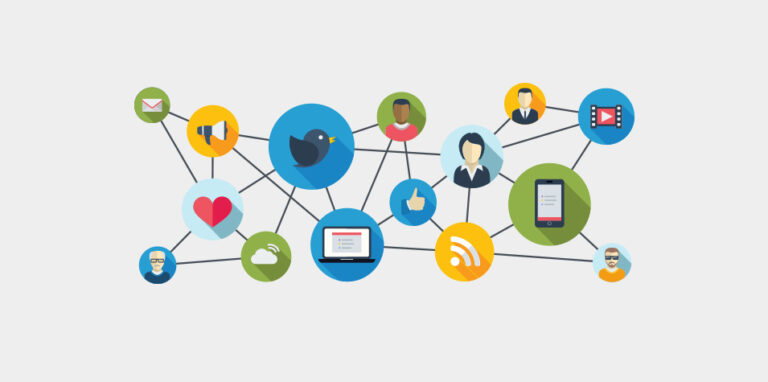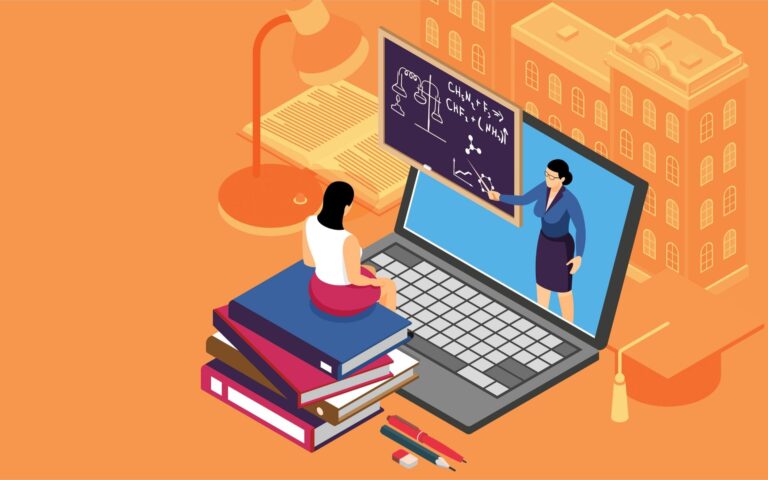Home › Education › Learning
A Remarkable Transformation in Education
Published on:
A remarkable transformation is underway in the field of education, driven by revolutionary advancements in technology. This article explores the various ways in which technology is being utilized to overhaul traditional learning methods and usher in a new era of online education.
Accessible and Inclusive Online Education
One crucial aspect of this evolution is the focus on creating accessible and inclusive online learning -environments. Technology plays a pivotal role in achieving this goal, with AI-powered tools such as speech-to-text translators and closed captions making learning content accessible to individuals with hearing impairments. Similarly, screen readers and braille displays cater to the needs of visually impaired learners. Adaptive technologies, exemplified by tools like TechnoTutor, further enhance inclusivity by customizing content presentation, question complexity, and platform layout to accommodate individual learners. These advancements are transforming online education into a truly inclusive space.
Simulations and Experiential Learning
Another significant advancement is the integration of simulations and experiential learning into online pedagogy. By utilizing advanced simulation technology, students are immersed in interactive virtual -environments that replicate real-world experiences. This approach not only brings theoretical concepts to life but also allows learners to develop crucial skills in a risk-free setting. Simulations can be personalized to align with each student's pace, providing a tailored learning trajectory that enhances comprehension and facilitates skill enhancement.
Video-Based Instruction and Lectures
Video-based instruction has emerged as a powerful tool to engage and educate learners. By leveraging audiovisual technology, video-based instruction enhances learning effectiveness by catering to visual learners and simplifying complex concepts. Video lectures also enable asynchronous learning, empowering students to control the pace of their education, revisit challenging topics, and skip familiar content. This flexibility has made video-based learning an invaluable resource for delivering adaptable and learner-centric education.
Social Networks

Social learning networks have harnessed the power of social interaction in online education, fostering collaboration and creating vibrant learning communities. These platforms provide spaces for knowledge-sharing, discussions, and collaborative projects, enabling learners to benefit from the collective wisdom of their peers. By facilitating the exchange of insights, experiences, and perspectives, social learning networks promote deeper understanding and critical thinking, paving the way for a more interactive and community-driven approach to online education.
Remote Labs and Virtual Experiments
Practical application and experimentation are vital components of comprehensive learning. To address this, remote labs and virtual experiments have emerged as ingenious solutions. Remote labs enable students to perform practical tasks and experiments using real equipment and observe real-time results from a distance. Virtual experiments leverage augmented and virtual reality technologies to create immersive and interactive experiences. By manipulating variables in virtual -environments, students can visualize cause-and-effect relationships, leading to a deeper understanding of complex scientific concepts.
In summary, technology has revolutionized the field of education by making online learning more accessible, immersive, and engaging. Through inclusive platforms, simulations, video-based instruction, social learning networks, and virtual experiments, technology has paved the way for a new era of online education that prioritizes personalized learning, collaboration, and practical application of knowledge.
Blockchain Technology for Credentialing and Certifications
Blockchain technology has found a unique application in online education through credentialing and certification. By utilizing an immutable and decentralized ledger, blockchain provides a transparent and secure platform for recording educational achievements. The implementation of blockchain for credentials enhances the verification process, reducing the risk of fraud and misrepresentation. With each qualification being recorded on the blockchain, the authenticity of a credential becomes easily verifiable, adding an extra layer of trust and integrity to online education.
Microlearning and Bite-sized Content Delivery

Microlearning has emerged as an effective content delivery strategy in the fast-paced digital world. This approach involves breaking down complex topics into smaller, manageable chunks, allowing learners to thoroughly grasp each aspect before moving on. Microlearning aligns well with modern attention spans and leads to improved retention and comprehension. Furthermore, its self-contained nature offers flexibility, enabling learners to progress at their own pace and adapt their education to fit other commitments. This adaptability makes microlearning particularly suitable for adult learners, part-time students, and those juggling work or caregiving responsibilities.
Peer-to-Peer Communities
Peer-to-peer learning communities are reshaping the online education landscape by providing spaces where' students can directly engage with one another. Within these communities, students can share resources, offer feedback, and collaborate on projects, fostering motivation, deepening understanding, and developing crucial communication and teamwork skills. With the support of technology, these peer-to-peer interactions can occur across geographical boundaries, bringing together learners from diverse backgrounds. This global interaction enriches the learning experience, promoting a sense of global citizenship and nurturing intercultural understanding and respect.
Language Learning Technologies
Language learning has also benefited from technological advancements. Interactive apps leverage speech recognition technology, enabling learners to practice pronunciation and conversational skills. AI-powered chatbots simulate conversations, offering real-time feedback and adapting to the learner's proficiency level. Online platforms provide access to a wide range of resources, including video content, e-books, and podcasts in multiple languages. These tools facilitate immersive learning experiences, helping students develop a holistic understanding of both the language and the culture it represents.
In conclusion, as we embrace the digital age, the integration of technology and online education continues to deepen, unlocking unprecedented potential. Innovations such as simulations and blockchain are transforming the educational landscape, making learning more immersive, accessible, and effective. This dynamic transformation promises a future where' quality education is accessible to anyone, regardless of their location, ability, or circumstances, empowering individuals to unlock their full potential.
Share With Your Friends